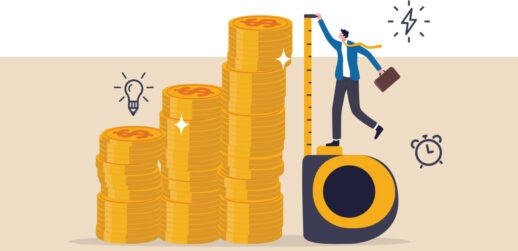Jane McGonigal helps us feel better about ourselves and the future
Worry and anxiety are not our friends. We all know that. Negative feelings about ourselves, our work, our families, the state of the nation and world can leach away our health and motivation, as well as our most important relationships.
Futurist Jane McGonigal spends her days devising antidotes to personal, professional and existential angst. She pioneers scientifically sound ways to feel what she calls “urgent optimism” about our future—and, by extension, our present.

Here’s how psychologist Scott Barry Kaufman (author of Transcend: The New Science of Self-Actualization) describes McGonigal’s latest book, Imaginable: “It’s one of those rare and thrilling books that actually changes you. It translates scientific insights into psychological breakthroughs, giving you a new set of tools to feel more hopeful, more creative, more awake to your dreams for the future.”
Another reviewer calls it “a fascinating book about how the future does not have to be an undiscovered country.”
Read More: Healthy You: Coping with Uncertainty
In a recent podcast, McGonigal had this to say about her mission: “The most joyful activity I can do as a futurist is to figure out how to take people through a very difficult present by thinking about a future scenario that would normally make us anxious or depressed or feel hopeless—and have them come out of this experience empowered and hopeful. It’s like this magic trick. A simple technique usually gets people from ‘ugh, I don’t want to think about that’ to ‘oh man, I’m ready for this future! I feel tough and I feel clarity.’”
That process begins, she says, with thinking about how you can use your personal skills and network to help others. “That just feels good, even if you’re thinking about difficult scenarios,” she says. Another benefit of the process, she promises, is that thinking about the future in this way can often help you work through traumas of the past.
“The future does not have to be an undiscovered country.”
McGonigal urges us to imagine ourselves 10 years out—and as concretely as possible. Where will you be? With whom? What will you be wearing? What smells waft through the air? What are you being honored for? And so on. When our brains are freed from the “facts” of the recent past or immediate future, they can “be more playful, combine things, turn things upside down. At a neurological level, the brain can give us permission to take seriously things that are 10 years out. It’s a wonderful, liberating timeline to play with.”
It’s also long enough for significant and unexpected change to occur. She cites astounding progress in a decade’s time in civil rights legislation, technology (first iPhone to the majority of the planet having smartphones) and gay marriage. “And it’s enough time for us to make change, too,” she says.
Games for Health
Oprah has called McGonigal one of the 20 most inspiring women in the world, and she’s gotten similar accolades from Harvard Business Review, Business Week and others. She’s perhaps best known as the PhD from University of California at Berkeley who as an inventor of games has tried to shift the focus of that genre from fantasy and escapism to helping to solve problems. Her game app SuperBetter is said to have helped more than a million players tackle real-life health challenges such as depression, anxiety, chronic pain and traumatic brain injury.
She has also consulted and developed internal game workshops for more than a dozen Fortune 500 and Global 500 companies.
Read More: Healthy You: The Memory Games
McGonigal describes Imaginable as “full of exercises and games and thought experiments. It’s a very active reading experience.” An enthusiastic reader described it to her social media as “a step-by-step guide for expanding your imagination and power to take positive action. We have already seen that the world can throw curve balls, but this is a cheat sheet for seeing around the corner to many possible futures and considering thoughtfully all the implications so you won’t feel blindsided about whatever comes next.”
At the very least, leaping ahead a decade might get your mind off your current problems. And that alone is a very healthy thing.
This article appears in the May 2023 issue. You can subscribe to the magazine here.




